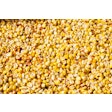
In comparison to many transactions in the business world, grain and feed ingredient purchase and sale transactions are fairly informal. In many respects, grain and ingredient trades remain relatively straightforward and largely result from casual telephone conversations followed by a short written confirmation. The volume of transactions, their standardized nature and the availability of trade rules perpetuated this approach long after other industries had moved toward more formal practices. Generally speaking, the parties’ performance was assured by both parties’ desire to continue the relationship and maintain a good name.
Modern business relationships continue to drive contract performance, and nonperformance continues to be the exception. Volatility has heightened the value of properly documenting grain trades. Increased competition has boosted the opportunity to terminate a business relationship with a counter-party rather than find a resolution to a dispute. The value of individual transactions, particularly with farmers, has grown, increasing the pressure for default when market prices move against the contract price.
Merchandisers operating today must exercise greater care in grain contracting. Doing business on a handshake alone is no longer advisable. But there are many instances where existence of the contract can be proven in the absence of a signature. Merchandisers should develop an understanding of the key legal concepts associated with grain contracts, so they know when the different rules may apply to the parties with whom they are transacting.
A. The statute of frauds
Valid contracts can exist without any writing or signatures by either party. Contracts may be either written or oral. With respect to oral contracts, however, certain conditions must be met in order for the contract to be enforceable — meaning that, in case of default, a party can prove the contract exists and recover damages in court.
The Statute of Frauds refers to the legal requirement that certain types of contracts be in writing to be enforceable. With respect to contracts for the sale of goods, which includes contracts for the sale of grain, the Statute of Frauds (UCC 2-201) provides:
A contract for the sale of goods for the price of $5,000 or more is not enforceable by way of action or defense unless there is some record sufficient to indicate that a contract for sale has been made between the parties and signed by the party against which enforcement is sought or by the party’s authorized agent or broker.
Subject to a few exceptions, like the merchant rule discussed below, in order for a contract to be enforceable it should be signed by both parties to allow both parties to enforce it. If one party signs, it may still be enforced against that party.
B. Transactions between “merchants”
The law allows commercial entities a bit more flexibility in formation and proof of the existence of an enforceable contract. UCC 2-201 makes special provision for merchants, those parties that make up a certain category of buyers and sellers, that allows them to enforce contracts without a signature. UCC 2-201(2) states:
- Between merchants if within a reasonable time a record in confirmation of the contract and sufficient against the sender is received and the party receiving it has reason to know its contents, it satisfies the requirements of subsection (1) against the recipient unless notice of objection to its contents is given in a record within 10 days after it is received.
A merchant, as used in the UCC, means:
- A person who deals in goods of the kind or otherwise holds himself out by occupation as having knowledge or skill peculiar to the practices or goods involved in the transaction or to which the knowledge or skill may be attributed by the person’s employment of an agent or broker or other intermediary who holds himself out by occupation as having the knowledge or skill.
UCC § 2-104 (1). If the party receiving the confirmation, signed by the sender of the confirmation, is a merchant and does not object, the parties’ oral contract is enforceable against the receiving party even through the receiving party did not sign the confirmation.
Most grain traders, merchandisers, warehouses, exporters and sophisticated end users will be deemed merchants for purposes of UCC § 2-201. Merchandisers should be aware of this likelihood, regardless of whether they are the party sending or receiving the confirmation. Merchandisers employed by industry participants should send their own confirmation for each transaction, and also carefully review every confirmation received for accuracy and promptly notify the sender of any objection.
In transactions between merchants where both parties issue contract confirmations with standard terms and conditions in fine print, it may actually be advisable to refrain from signing a confirmation issued by the other merchant. The UCC contains a detailed set of rules for this “Battle of the Forms,” which will determine which provisions apply when the parties exchange confirmations that are in conflict with one another. Merchandisers should seek advice from counsel as to the development of the appropriate policies and procedures to address confirmations received from counterparties that contain conflicting provisions, and should understand which provisions will ultimately govern a dispute among the parties should one arise.
C. The farmer as a “merchant”
Given the increasing business sophistication of farmers, one might expect that farmers be held to the same standard as other industry participants — grain dealers, warehouses and processors — when it comes to grain contracting. Some courts have taken a protective approach toward farmers, with some states affording farmers a degree of shelter against the enforcement of contracts with larger commercial entities. One opportunity for such treatment is found in the application of the merchant exception to the Statute of Frauds.
Some jurisdictions hesitate to designate farmers as merchants for purposes of the UCC. Often, the decision is based upon a sliding scale of several factors. The more sophisticated and experienced a farmer is with respect to the commodity traded, the more likely it is that a court would classify them as a merchant. Key factors to consider may include:
- The degree to which the farmer purchased ingredients, sold his production, resold the crops of others, or otherwise held out as having particular knowledge or experience in selling or purchasing the crop or ingredient at issue;
- The length of time the farmer has been buying or selling the product;
- The degree of business acumen shown by the farmer in dealings with other parties;
- Whether or not the farmer has retained an expert or adviser to assist with grain marketing or ingredient purchasing;
- The farmer’s awareness of the operation and existence of commodity markets; and
- The farmer’s experience with or knowledge of the customs and practices unique to the particular marketing of the product he or she buys or sells.
See Colorado-Kansas Grain Co. v. Reifschneider, 817 P.2d 637, 640 (Colo. Ct. App. 1991). The application of the foregoing factors to a particular farmer may result in a judicial determination that the farmer is a merchant, or the opposite.
It is the court’s role to apply this test, or another test of a particular jurisdiction, to determine the merchant issue. Achieving this determination adds cost to the enforcement process as well as legal risk — risk that the court will decide against the party seeking to enforce the contract. For these reasons, and to ensure the enforceability of a contract, the best practice is to insist upon the return of a signed copy of the confirmation by the counterparty, particularly a farmer, understanding that you may not always receive a signed copy back from a fellow merchandiser.
Subscribe to Magazine


















